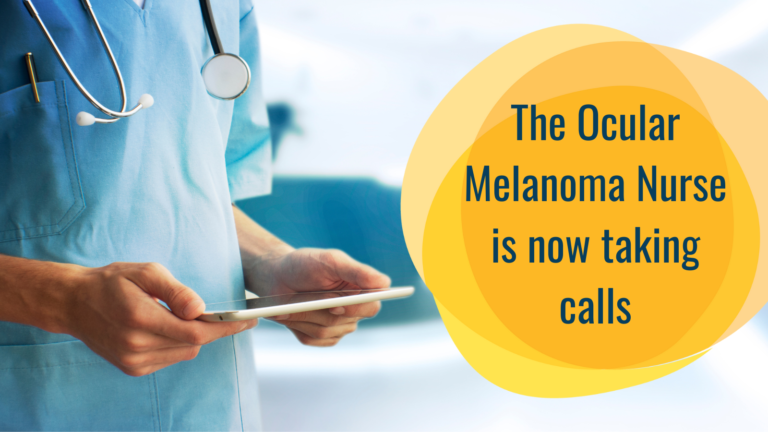In an Australian first, a new specialist telehealth service has launched to support patients with ocular melanoma (melanoma affecting the eye) in remote and regional areas.
The National Ocular Melanoma Nurse will connect virtually with patients to provide advice about managing issues with their vision, counselling, information about clinical trials, and more.
The initiative is funded by the Australasian Ocular Melanoma Alliance (AOMA), a special interest research group of Melanoma and Skin Cancer Trials (MASC Trials), and will provide the vital missing link for patients outside of major cities, who would otherwise have to travel long distances for checkups – or potentially sacrifice their treatment.
Professor Anthony Joshua, AOMA Chair, said the National Ocular Melanoma Nurse is a game changer for those diagnosed with this rare disease.
“Because ocular melanoma is not a common disease, many patients end up having to turn to informal channels, like Facebook groups, for advice. This initiative provides a much-needed formal support mechanism that can provide high-quality advice that can not only improve their quality of life but potentially save it,” Prof Joshua said.
“Over the pandemic we’ve all become acclimatised to Zoom calls and telehealth appointments, so the melanoma nurse has launched at a particularly poignant time. I look forward to seeing this initiative progress and have a real impact, as it’s a truly exciting development for ocular melanoma patients and their families,” he added.

The National Ocular Melanoma Nurse is based out of Sydney’s St Vincent’s Hospital but will treat patients all around Australia.
It’s the latest in a spate of exciting developments aimed at improving outcomes for patients with uveal melanoma, a rare and aggressive form of ocular melanoma, of which there is currently no accepted management or treatment.
In early 2021, MASC Trials launched the Australian arm of the Uveal Melanoma Registry – the first global patient registry for uveal melanoma. The registry aims to gather patient data from sites throughout Australia, Europe and the US.
The registry will play a crucial role in identifying predictive clinical features, documenting the natural history of uveal melanoma and collecting real world data regarding its clinical management.
For more information on the National Ocular Melanoma Nurse, visit the AOMA website.

